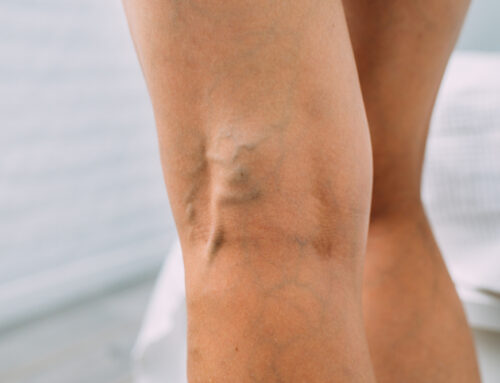Radiofrequency Ablation
Sometimes mistaken for laser vein treatments, radiofrequency treatments remove varicose veins by administering heat created by RF energy. At VeinSolutions Flint, we perform minimally invasive radiofrequency ablation right here in our office. Our vein specialists can use radiofrequency ablations for varicose veins and for spider veins.
What Happens During RFA?
During the RFA procedure, heat generated by RF energy will be sent into your veins through a catheter to gently break down the vein that’s having blood flow problems.
How To Prepare For Vein Ablation
Your provider will give you specific instructions on how to prepare for your procedure.
During your initial consultation, you will need to review your medical history with your provider. Make sure to tell your healthcare provider if you:
- Are pregnant or expect to become pregnant
- Are breastfeeding
- Smoke regularly
- Use alcohol regularly
- Are allergic to any medication and any kind of reaction you have to those medicines
You should also tell your doctor which medicines you take regularly. Certain medicines might increase your risk of experiencing side effects or extend your recovery.
Medicines your provider might ask you to stop taking before your procedure include:
- Anticoagulants (blood thinners)
- Prescription drugs
- Over-the-counter pain relievers like ibuprofen, aspirin, or acetaminophen
- Herbal supplements
- Vitamins
- Other supplements
What Do I Need To Do The Day Of My Treatment?
Overall, including preparation time, you can expect the entire procedure to take anywhere from 1 to 3 hours. The steps of the procedure generally are as follows:
- The procedure will be guided by an ultrasound
- Your leg will be numbed for your comfort
- After your leg is numbed, a small needle will make a puncture in the vein that needs to be treated
- The catheter will be inserted into the vein and then the RF energy will be applied
- As the heat is conducted into the vein, your doctor may use more numbing medicine for your comfort
- The catheter will be moved into the right position, and then will slowly be drawn back through the vein–sealing it
- Depending on the extent of your varicose veins, connecting veins may be removed or sealed as part of the treatment
- Finally, the catheter will be removed and a bandage will be applied over the puncture
- You may be given a compression bandage to wear on your leg to promote the healing process
What To Expect After Vein Ablation?
After a few days or a week, the damaged veins will start to disappear and become reabsorbed into your body. Your body will then create new veins and capillaries to ensure there is healthy blood flow.
While you’re recovering you should:
- Follow all instructions of your medical provider
- Take all prescribed medicines
- Clean and care for the catheter puncture site
- Clean and care for any additional incisions
- Elevate your legs regularly
- Wear your prescribed compression stockings as directed
- Go on a short walk a few times each day to promote circulation
- Avoid flying
- Avoid swimming jacuzzis, hot tubs, or using whirlpool baths
How Well Does Radiofrequency Vein Removal Work?
Radiofrequency vein removal has been used for over 20 years and has proven to be both safe and effective. Our patients report almost immediate improvements and relief from vein-related leg pain.
How Does RFA Work for Spider Veins?
Since spider veins are much smaller than varicose veins, and usually nearer to the surface of the skin, RFA can be used through a small handheld device to remove tiny spider veins.
Our facial spider vein patients report noticing results after a day or two after facial vein therapy. If you’re interested in another option for your vein treatments, our surgeons can recommend sclerotherapy and microphlebectomy treatments.
Vein Ablation Side Effects
Potential side effects of RFA include:
- Skin burns
- Nerve damage – pain, or burning or prickling sensations around the treated vein
- Large or small blood clotting around the vein
Leg Vein Ablation Recovery
How Long Does It Take for a Vein Ablation to Heal?
So long as you follow all of the instructions from your healthcare provider, typically patients make a full recovery within 1-2 weeks.
You can expect to wear your compression stocking for at least 1 week, possibly longer depending on the recommendations from your doctor.
The nature of vein ablation means you can go back to light normal everyday activities immediately after your procedure. However, you should avoid heavy or intense exercise for at least 1 week after your procedure.
Vein Ablation Surgeons at Vein Solutions in Flint and Lapeer, Michigan
If you’re looking for a way to get rid of your varicose veins, schedule a consultation with one of our vein experts at either our Flint or Lapeer office. We provide free vein screenings for all our patients so we can help you find the best path for your vein health.
Request A Consultation
Give Us A Call:
(810) 232-3363
Give Us A Call:
(810) 232-3363



